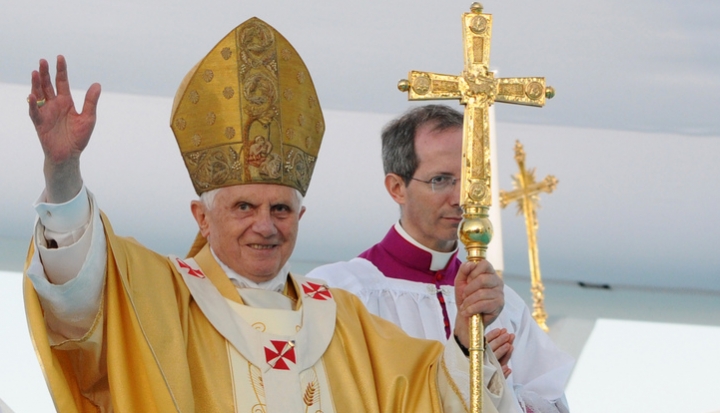Pope resignation fever seems to have spiked at The New York Times, which today published its equivalent of a Glad You Asked (U.S. Catholic's q&a column about Catholicism): "When a pope retires, is he still infallible?" The simple answer, "no, and he never was infallible" doesn't really appear until the very end of the story, still lacking that last bit.
Instead we are treated to random people spouting off about what they think papal infalliblity is. "Benedict actually by resigning has introduced some cracks into that infallibility," said the normally careful and thoughtful historian of the church Diarmurd MacCulloch of the U.K. "It’s bound to relativize doctrine." Which ones? The ones Pope Benedict declared invoking papal infallibility? Oh, that's right. He never did.
Another British historian, again usually on target, Eamon Duffy remarked, "He’s thought the unthinkable, done the undoable. He’s broken a taboo that had last[ed] 600 years, the last 150 of which presented the pope as a religious icon, the emblem of Jesus Christ, not the leader of a global church." Unthinkable? It was "thinkable" enough that the framers of canon law foresaw it back in the early 1980s. Get a grip!
Even someone who should know better, a historian at Catholic University (would somebody please ask a theologian?) got it wrong: "We have no rules about that at all," worried CUA's Ken Pennington. "What is his title? What are his powers? Does he lose infallibility?” His powers? Telepathy? Besides, there are plenty of rules for a retired bishop–the Roman Catholic Church is overrun with them, and there's this thing called canon law that governs what they can and can't do.
Luckily, in paragraph 5, journalist Rachel Donadio gives us the straight dope from papal spokesman Federico Lombardi: "The Vatican spokesman, the Rev. Federico Lombardi, has repeatedly said that Canon Law ensures the infallibility of Benedict’s successor, and that once he retires, Benedict will no longer have the authority to promulgate dogma." Phew!
The best line, however, comes at the end, when a professor at an Opus Dei university, Philip Goyret of Rome's Santa Croce, says candidly: "If after March 1, Benedict XVI loses his head and writes that he declares in an infallible way that the Virgin Mary died before being assumed into heaven, this won’t be an infallible decision, because he’s no longer doing it as pastor of the universal church. . . . But he’s a very intelligent person and will never do that." Thank God for Ratzinger's level head.
But it wouldn't make any difference if, after March 1, Joseph Ratzinger did lose his head and went on a campaign declaring infallibly that Jesus' eyes were blue: He won't be pope then, and infallibility is a character of the papal office, not the person who sits in the chair. (Not to mention that Jesus' eye color is not a matter of faith or morals.) No person has the individual charism of infallibility; it is a gift provided the church by the guidance of the Holy Spirit, more a guarantee that the church as a whole will not depart from the saving word found in the gospel. It's a charism, as the Second Vatican Council taught, shared by the all the bishops when they together speak with one voice on a matter of faith and morals. And, I kid you not, the council also taught that it is a charism shared by all the faithful–the whole church–when we are of one mind.
Indeed, papal infallibility is a special case of the infallibility of the church (not the other way around)–and it's not a character that sticks to a person after he has been pope. It's a gift of office. As for what to do with our brother Joseph, we know full well how to deal with a retired pope, which is the way we deal with any retired bishop who has been a good servant–with kindness, gratitude, and pastoral care. So everyone take a deep breath.
Flickr photo cc by Catholic Church England and Wales/M.Mazur/www.thepapalvisit.org.uk









